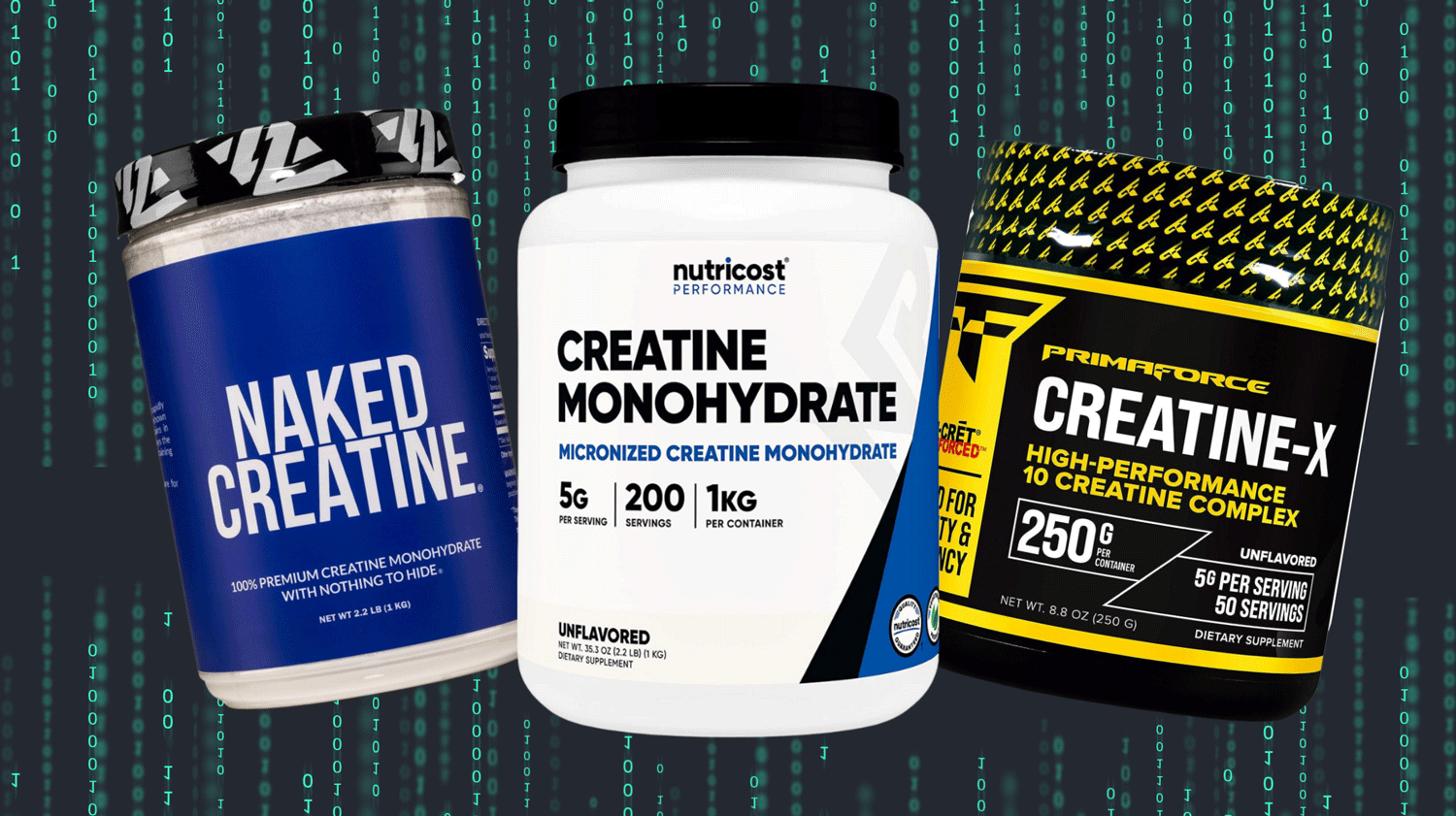What Is Creatine?
And Should I Take It? (Answer: YES!)


Creatine is a powerhouse for muscle energy, especially during rigorous workouts or high-octane activities. While athletes harness its potential to amplify strength and elevate performance, it’s an equally potent ally for older individuals and vegetarians seeking similar advantages.
Creatine stands as the premier supplement for amplifying gym performance. Renowned research confirms its prowess in bolstering muscle mass, enhancing strength, and optimizing exercise outcomes.


WHAT IS OUR #1 CREATINE SUPPLEMENT?
Check Our Ranking of the 12 Best Creatine Supplements for 2023
Beyond its athletic benefits, preliminary studies suggest its potential in regulating blood sugar and augmenting cognitive functions, though these areas warrant further exploration. Contrary to some misconceptions, creatine isn’t riddled with adverse effects. Scientific consensus refutes these notions, underscoring its safety.
Indeed, creatine’s reputation is cemented by rigorous testing, showcasing its impeccable safety record. Our comprehensive guide provides insight into the nuances of creatine and its profound implications.
What Is Creatine?
Creatine, inherently present in muscle cells, is the powerhouse behind the surge of energy your muscles harness during intense workouts or strenuous lifting sessions.
Why use creatine?
Creatine supplementation is a almost universally adopted by elite athletes and bodybuilders, sought after for its efficacy in muscle augmentation, strength enhancement, and exercise optimization.
From a chemical vantage point, creatine closely mirrors amino acids, the pivotal building blocks of protein in our bodies. It’s fascinating to note that our system can synthesize creatine from the amino acids, glycine and arginine.
Interestingly, a significant portion of the creatine reserve in our body is derived from dietary sources, predominantly red meat and seafood. The remainder is produced within our liver and kidneys, utilizing amino acids.
Where does the body store creatine phosphate?
A staggering 95% of the body’s creatine reserves nestle within the muscles, predominantly as phosphocreatine. The remaining 5% graces the brain and testes.
By supplementing with creatine, you bolster your phosphocreatine stores, a crucial energy reserve within cells. This amplification aids in the production of a potent energy molecule known as adenosine triphosphate (ATP).
Often dubbed the body’s primary energy currency, an abundance of ATP equips your body to excel during physical exertion.
Furthermore, creatine performs a series of cellular dynamics, resulting in enhanced muscle growth, amplified strength, and expedited recovery.
What’s the science behind creatine’s efficacy?
- Amplified Workload: Creatine empowers you to achieve greater work or volume in each training bout, a cornerstone for sustained muscle augmentation.
- Enhanced Cell Signaling: It escalates satellite cell signaling, streamlining muscle repair and fostering new muscle development.
- Anabolic Hormone Surge: Research highlights an uptick in hormones like IGF-1 post creatine consumption.
- Cell Hydration Boost: By elevating water retention within muscle cells, creatine induces a cell volumization effect, potentially pivotal for muscle expansion.
- Protein Breakdown Curtailment: Creatine’s presence can potentially swell total muscle mass by mitigating muscle degradation.
- Myostatin Level Regulation: Elevated myostatin protein levels can stymie new muscle growth. Creatine supplementation curtails these levels, unlocking greater growth avenues.


What’s the role of creatine in muscle development?
Creatine has cemented its reputation as a potent catalyst for both immediate and sustained muscle enhancement.
Its benefits transcend demographics, proving advantageous for the sedentary, the aging population, and the athletic elite alike.
A comprehensive 2022 analysis revealed that creatine supplementation significantly bolstered muscle development in robust young adults.
Further, a 2019 assessment deduced that creatine, irrespective of resistance training, augments muscle mass and fortitude in the elderly, simultaneously mitigating fall risks.
Historical research posited that creatine could amplify muscle fiber growth at rates 2–3 times higher than mere training. While contemporary studies present more conservative outcomes, the overarching consensus remains unshaken.
Indeed, a meticulous evaluation of prevalent supplements crowned creatine as the unparalleled champion for muscle mass enhancement.
The Powerhouse of Strength and Performance
- Elevate muscle strength and resilience in young adults engaged in resistance training.
- Inject that crucial burst of energy for cyclists, especially during the climactic sprint in time trials.
- Sharpen agility, enhancing both jumping and sprinting prowess in soccer aficionados.
- Propel power generation in swimmers, an indispensable asset for strokes like butterfly and breaststroke.
The Cognitive Power of Creatine: Beyond Muscles to the Mind
Your brain, much like your muscles, harbors phosphocreatine reserves and thrives on a steady supply of ATP for peak performance.
- Neurodegenerative afflictions such as Alzheimer’s and Parkinson’s.
- The debilitating amyotrophic lateral sclerosis (ALS).
- The aftermath of traumatic brain injuries.
- The unpredictable nature of epilepsy.
- But the scope of creatine’s neurological benefits isn’t confined to these conditions. Human-centric research paints an even broader canvas.
Additional Health Benefits of Creatine
- Regulate blood sugar levels, offering a promising avenue for diabetes management.
- Act as a therapeutic agent for nonalcoholic fatty liver disease.
- Bolster cardiac health, fortifying the heart’s resilience.
- Mitigate the detrimental aftermath of strokes.
The Supremacy of Creatine Monohydrate


Creatine Dosage
Side Effects and Safety of Creatine: Myths and Realities



